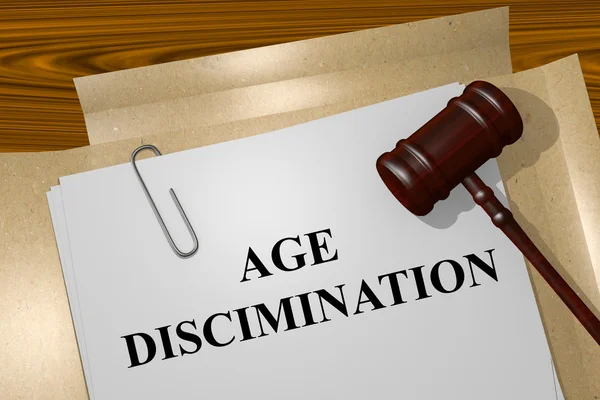Key Takeaways:
- Understanding legal implications and preventive measures can help mitigate dog bite incidents.
- Being informed about owner liability and victim rights is critical when dealing with dog bites.
- Immediate steps after a dog bite are crucial for ensuring safety and securing legal rights.
- Resources such as medical, legal, and psychological support can aid in the recovery after a dog bite.
Contents
What Constitutes a Dog Bite Incident?
Dog bite incidents are multifaceted, often resulting in physical and psychological harm. Evaluating the circumstances surrounding the bite, including provocation and the dog’s behavior, is crucial for determining liability and legal options. From minor nips to severe attacks, understanding when a dog bite becomes legal is essential. Seeking guidance from a knowledgeable dog bite injury attorney can clarify and assist in navigating personal injury law, ensuring fair compensation for victims.
Legal Framework Surrounding Dog Attacks
Cases involving dog bites are subject to different legal frameworks, like negligence or strict liability, which can differ depending on the jurisdiction. Negligence assigns responsibility to owners if they don’t take reasonable precautions to prevent their dogs from biting, whereas strict liability holds owners accountable regardless of the situation. Familiarity with these principles is essential for injured individuals pursuing compensation and for owners to comprehend their legal obligations. Seeking guidance from a dog bite injury attorney can provide invaluable assistance in navigating these legal complexities. Legislation, like leash and containment laws, aims to prevent dog bites by requiring restraint in public and secure enclosures at home. Violations of these laws can lead to legal action, underscoring the importance of owners knowing and following local regulations.
Preventative Measures to Avoid Dog Bites
Preventing dog bites involves comprehensive measures, including proper socialization and training for owners and dogs, ensuring comfort in various situations. Obedience training, understanding canine body language, and educating people on appropriate behavior around dogs are crucial. Recognizing that any dog can bite if threatened or in pain underscores the importance of cautious approaches and supervision, especially with children. Clear communication with owners about a dog’s behavior is essential for identifying triggers and sensitivities minimizing the risk of bites.
The Role of Animal Control in Community Safety
Animal control agencies play a critical role in community safety regarding dog bites. They respond to reports of aggressive animals, enforce local laws, and manage stray animals. They maintain databases of dangerous dogs and conduct investigations after incidents, including gathering evidence and securing the animal involved. Their expertise makes them valuable resources for bite victims, offering guidance on reporting incidents and legal actions and educating the public on prevention strategies. Cooperation with these agencies helps ensure appropriate measures are taken to address offending animals and promote public safety.
Medical and Psychological Aftermath of Dog Bites
Recovery from a dog bite involves both medical and psychological challenges. Physically, injuries can range from minor cuts to severe wounds, with the risk of infection requiring prompt medical attention. Psychological impacts can be significant, leading to long-lasting fear and the potential development of PTSD, especially in children. Psychological support, including counseling and therapy, is crucial for mental recovery. Support systems such as support groups and mental health professionals specializing in trauma play a vital role in facilitating healing. Education about the recovery process empowers victims to navigate their experiences effectively.
Understanding Owner Liability and Victim Rights
The liability for dog bite incidents can be complex and depends on local laws, the bite’s circumstances, and the dog’s and its owner’s behavior. Dog owners are typically held responsible for their pets’ actions, but liability laws vary, with some jurisdictions following a ‘one-bite rule’ and others enforcing strict liability. Victims of dog bites have the right to seek legal representation and pursue compensation for their injuries. A skilled dog bite injury attorney can offer guidance on the legal aspects of the case, negotiate with insurers, represent the victim in court, and ensure that their rights are upheld throughout the process.
What to Do Right Away Following a Dog Bite Incident
Reacting swiftly and appropriately after a dog bite is crucial for medical treatment and legal resolution. Safety should always be the priority, with victims seeking medical help even for seemingly minor injuries and leaving the area where the bite occurred. Wounds must be cleaned and dressed to prevent infection, and medical professionals can assess the need for further treatment. Comprehensive incident documentation is essential, including gathering contact information from the dog owner and witnesses and taking photos. Reporting the bite to local authorities and animal control is also crucial for establishing a formal record. Victims should also prioritize their mental well-being and seek support from loved ones or professional counselors to cope with the emotional shock of the event.
Statute of Limitations for Dog Bite Cases
Victims of dog attacks should be aware of the statute of limitations, which dictates the timeframe for filing a personal injury claim, typically ranging from one to six years from the bite date, depending on the jurisdiction. This deadline is essential to ensure legal action and compensation. Early on, consulting with a legal professional ensures all necessary actions are taken within the appropriate timelines. Beyond understanding the statute, victims must navigate insurance, medical treatment, legal claims, and potential lifestyle adjustments resulting from their injuries, emphasizing the importance of being proactive and knowledgeable throughout recovery.
Educating the Community on Responsible Pet Ownership
Responsible pet ownership is crucial for preventing dog bites and creating safer communities. This includes following local animal laws, providing proper care such as fencing and veterinary attention, and ensuring pets have identification. Education for owners and the public on safe dog interactions is critical. Municipalities often offer programs or workshops, while schools may teach children how to approach dogs safely. Public service announcements and initiatives like National Dog Bite Prevention Week also contribute to community education efforts.
Resources and Support for Dog Bite Victims
Recovery from a dog bite can be multifaceted, requiring medical treatment, legal assistance, and psychological support. Various resources are available to aid victims through this process, offering educational materials on dog bites and prevention. Local health departments provide post-bite care, while legal professionals offer guidance on compensation and insurance matters. Support groups and mental health services also provide crucial emotional support, allowing victims to share experiences and receive understanding. Accessing these resources empowers victims to navigate their recovery comprehensively, addressing physical and emotional aspects.
Dealing with insurance claims following a dog bite can be challenging for victims. Homeowners’ or renters’ insurance policies often cover such incidents, but navigating the claims process can be difficult. Victims need to understand their coverage and the procedures for filing and following up on claims. Insurance companies typically require detailed accounts of the incident and documentation of injuries. Victims must maintain all relevant records and communications with the dog’s owner. Legal assistance may be beneficial in negotiating with insurance companies to ensure fair compensation and protect victims’ rights.
Current Trends and Statistics in Dog Bite Incidents
Understanding national trends and statistics in dog bite incidents can be instrumental in developing effective prevention strategies. The American Veterinary Medical Association (AVMA) provides research and data on dog bite occurrences, factors contributing to aggressive behavior, and tips for preventing bites. These insights can shape educational programs, update local laws, and inform community safety plans. By reviewing and applying up-to-date data, communities can work proactively to reduce the number of dog bite incidents and create a safer environment for both people and pets.




